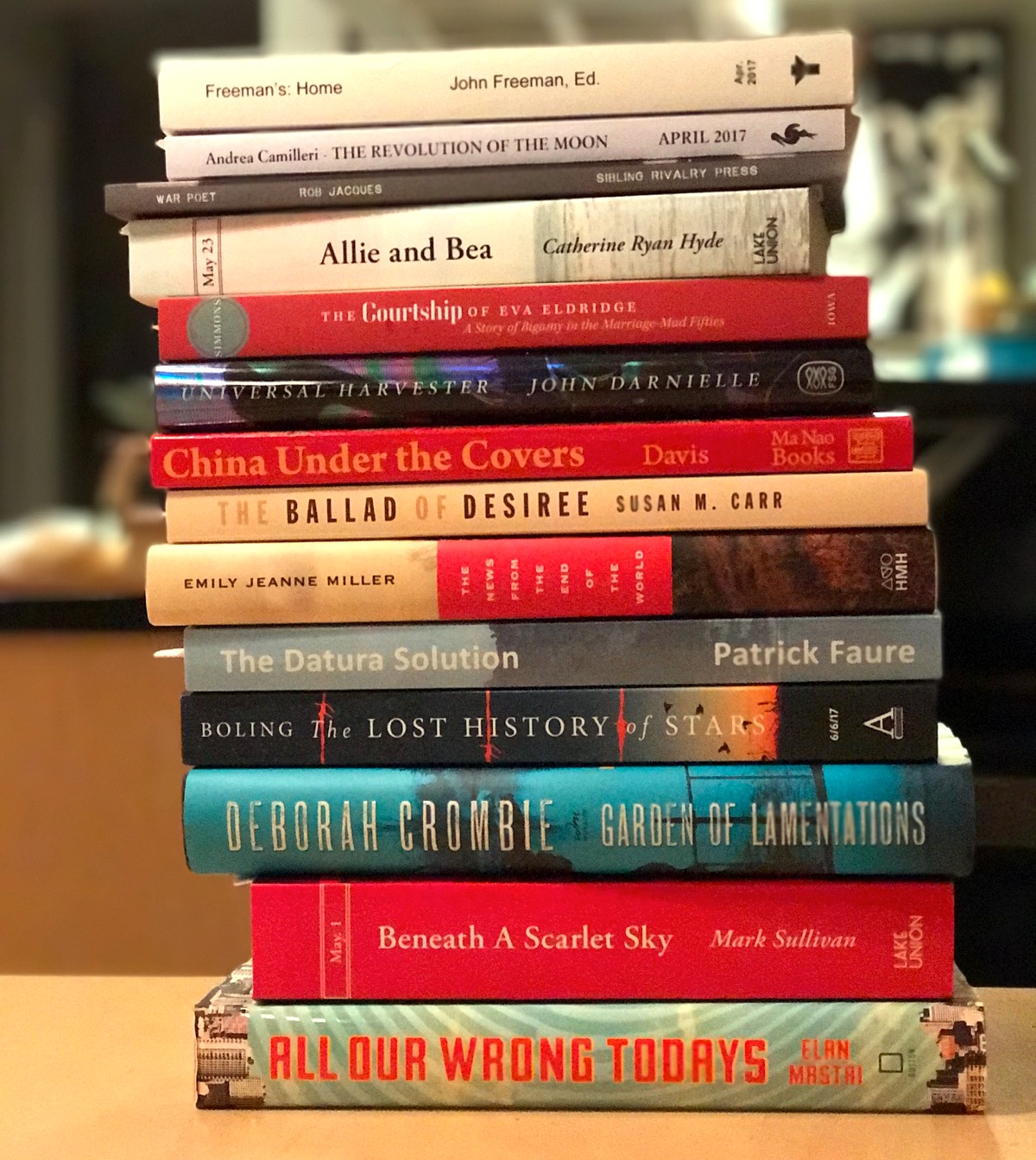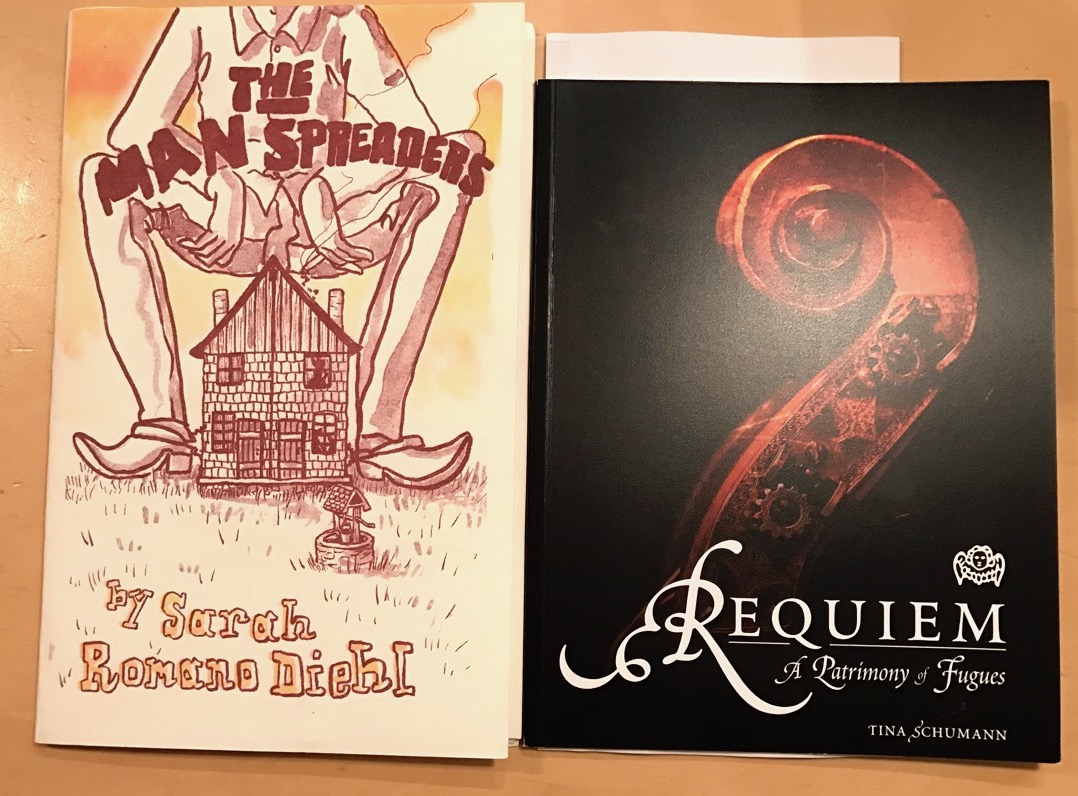You have to read Mary Ann Gwinn's final column in her role as the Seattle Times books editor. It's a grand and generous tour of the last 34 years in Seattle literary history. I'm not going to pull a single quote here, because you should read the whole thing. (Full disclosure: I choked up a little at the shoutout to the Seattle Review of Books.)
But before we get too somber, let's note that Gwinn is not disappearing: she will contribute columns to the Times, she's writing about books for other outlets, and she'll continue to co-host Well Read on KCTS. But a three-and-a-half decade long career as a book reviewer is a remarkable achievement, and it deserves our recognition.
Thanks for everything, Mary Ann. Here's to many more years of talking about books.
Finding each other in the dark
Published February 02, 2017, at 10:00am
Last night, the Reading Through It Book Club got together to discuss Hope in the Dark. Here's what the meeting was like.
Seattle reporter and critic Cate McGehee profiled Seattle poets Jane Wong and Quenton Baker for the Spokane Inlander. You should read the piece.
Your Week in Readings: The best literary events From February 1st - February 7th
Wednesday February 1st: Reading Through It: An American Book Club Discusses Hope in the Dark
See our Event of the Week column for more details. Third Place Books Seward Park, 5041 Wilson Ave S, 474-2200, http://thirdplacebooks.com. Free. All ages. 7 p.m.Alternate Wednesday February 1st: Looseleaf Reading Series
Whenever we at the Seattle Review of Books recommend one of our own events, we try to find an alternate event to recommend in the name of fair representation. Tonight’s alternate event is the Looseleaf Reading Series, featuring a slate of up-and-coming writers including Tamiko Nimura, Renee Simms, Natalie A. Martínez, featured reader C. Rosalind Bell, and music by Kristin Allen-Zito. who you may know as the lead singer for The Trucks. Chop Suey, 1325 E. Madison St., 324-8005, http://chopsuey.com. Free. 21+. 7 p.m.Thursday February 2nd: While Glaciers Slept Reading
In her new book While Glaciers Slept, M. Jackson intertwines the history of climate change with a personal story about cancer striking her family. Now that we live in a time when climate scientists are being silenced by our own government, this book is even more important. Town Hall Seattle, 1119 8th Ave., 652-4255, http://townhallseattle.org. $5. All ages. 7:30 p.m.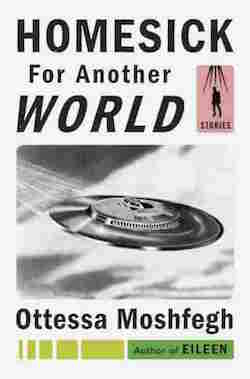
Friday February 3rd: Homesick for Another World Reading
Ottessa Moshfegh’s novel Eileen was a word-of-mouth success story; booksellers can’t stop raving about it, and David Sedaris fell so hard for the book that he brought Moshfegh to town during his annual visit to Benaroya Hall. Tonight, Moshfegh debuts her first, much-anticipated collection of short stories. Elliott Bay Book Company, 1521 10th Ave, 624-6600, http://elliottbaybook.com . Free. All ages. 7 p.m.Saturday February 4th: Fire Safety and Other Stories
Author John Mullen is a graduate of a recent class of Jack Straw writers including big names like Jane Wong and Claudia Castro Luna. Barbra Earl Thomas is a painter who has been part of the fabric of Seattle for decades. Tonight they’ll tell stories, with music by Kate Farrell. Royal Room, 5000 Rainier Ave., 906-9920, http://theroyalroomseattle.com. Free. All ages. 6 p.m.Monday February 6th: Margin Shift
The Seattle poetry collective hosts four poets: Steven Karl (sample line: “You were not petted or chatted to. You drank alone,”) erica lewis (“the past/has ruined/our entire future,”) Jamaica Baldwin (none of whose poems are online yet,) and Amber Nelson, who until recently was the publisher of the late, great Alice Blue Books. Common AREA Maintenance, 2125 2nd Ave, (253) 224-0746. http://commonartspace.com. Free. All ages. 7 p.m.Tuesday February 7th: Ross Gay
Seattle Arts and Lectures bring the prolific poet and editor to Seattle to discuss poetry as a means to expand your imagination. Last spring, Gay published a terrific short poem in the New York Times that compared flutes and humans: “a man/sings by opening/his lungs by/turning himself into air…a flute lays/on its side/and prays a wind/might enter it.” McCaw Hall, 321 Mercer St., 733-9725, https://www.lectures.org. $15. All ages. 7 p.m.Literary Event of the Week: Reading Through It Discusses Hope in the Dark
If I had to choose one, and only one, writer to help me navigate the world for the rest of my life, my choice would probably be Rebecca Solnit. Solnit is a considerate, intelligent writer; sometimes when you read her essays you can feel your own brain changing and growing to accept new information about the world. And she’s also got the power to direct the very flow of popular culture; her essay “Men Explain Things to Me” is widely regarded as the source of the word “mansplaining.”
Not many writers have the capacity and the ingenuity to identify a universal experience — in this case, that moment when a man tries to crowbar his own incorrect comprehension of the truth into a woman’s greater understanding — and give a name to it. Mansplaining has always existed, but it wasn’t a part of our vocabulary until Solnit named it. Genius isn’t the invention of something new; it’s the identification of a pattern that had always been there before, the recognition of an emotion that was never before correctly articulated. Solnit’s addition to the taxonomy of our shared experience is priceless.
For the last two months, the Seattle Review of Books and the Seattle Weekly has hosted Reading Through It, a civic-minded book club that is trying to identify the causes and meanings of Donald Trump’s presidency. Now that we’re more than a week into the Trump Administration, and now that the array of anti-science, anti-human laws and executive orders has progressed at an even more alarming rate than many of us predicted, it’s time to break out the big guns, by which I mean it’s time pit Rebecca Solnit’s brain against the world to see what happens.
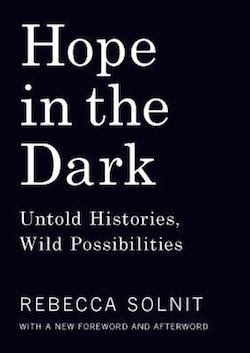
Hope in the Dark: Untold Histories, Wild Possibilities was originally published in 2004, but Solnit’s Iraq War-era manifesto has found new life in the aftermath of the 2016 election. From the first line, it slaps the despairing across the face and challenges their assumptions: “Your opponents would love you to believe that it’s hopeless, that you have no power, that there’s no reason to act, that you can’t win.”
From the keyboard of a lesser writer, one could imagine those words as the preamble to a hollow pep talk. But anyone who has read Solnit before knows that she is not someone who slathers the desperate with empty words of positivity. She is, to put it bluntly, incredibly fucking smart. And if she says there’s space for hope when everything seems hopeless, you’d have to be an idiot to bet against her.
This meeting of Reading Through It should have room for plenty of meaningful conversation: can we compare a Trump administration with the unmitigated failure of a George W. Bush administration? Are we dealing with something altogether different? Do Solnit’s old words of hope still have meaning today? Do old methods of activism work anymore, or must we arm ourselves with new rhetorical weapons? Can even one of the biggest brains in contemporary writing save us now? To that last question, the answer can only be: let’s hope so.
El Salvador: America Offers One Family The Chance To Forget Fears
This piece was first published on Claudia Castro Luna's blog

This newspaper article, written exactly 36 years ago, marks the beginning of my immigration story. Those people in the picture are my parents and my sister. I am the one sitting, with my fists turned awkwardly in the foreground. When the photo was taken we had been in the US exactly 13 days. Before that we survived in a war zone. For decades the article lived folded inside a manila folder until the day I realized how lucky I was to have such palpable evidence of my family's arrival in the US.
I have to say that in my rebellious college years the headline struck me as jingoistic. But over time I have come to appreciate the confidence in the sentiment. There is pride in that headline. The pride of being a prosperous, generous country welcoming others into the fold. This is how America saw itself before my family arrived on its shores and how it has seen itself for the thirty six years we have resided on its soil. This welcoming, generous attitude has been a core American value. Until this week.
I have collapsed several times over the past twenty four hours unable to hold in my mind the terror the refugees being denied entry into the US have encountered in the countries they are fleeing. I think of the shock and desperation they must be feeling at being so close to hope again only to be told they may not leave the airport.
To immigrate is a form of death. No one leaves what they know and love gleefully.
To immigrate is a form of death. No one leaves what they know and love gleefully. In my family's case, my parents left everything they had: brothers, sisters, friends, possessions, jobs, culture, language, the safety of the familiar, to give their daughter's a chance at life. Literally they sought an opportunity to save us from the destruction and massacres destroying El Salvador in the early 1980's.
Despite my youthful misgivings, it turns out that the newspaper headline was correct after all. America did offer my family and me a chance. A huge chance. To dream, to conjure possibilities, to know what is like to plan ahead, to almost take for granted that a new day will come.
The stance taken by the Trump administration comes from a small America, from a US no longer confident in its greatness and in its ability to offer respite to those escaping unspeakable brutalities. It is unbecoming of this nation to take such a narrow, prejudiced stance. It sullies its own history.
I am, and forever will be, grateful for the chance America offered my family. I venture to say everyone who has been given the same chance appreciates it keenly, and every day.
Am I not an immigrant?
(After Soujourner Truth’s speech, Ain’t I a woman?)
There is so much turmoil in our country of late, something must be terribly wrong.
There is a man over there, who occupies the highest office in the land, who says immigrants are rapists, criminals, the worst kind of people.
I have never committed a crime, have paid taxes every year of my adult life, and have worked to earn an honest wage! And, am I not an immigrant?
He says, immigrants take away from everyone and for this they should be rounded up by the millions and deported; they should be banned and blacklisted for worshiping in a way that differs from his. I studied hard to obtain an education and worked to educate children in public schools and everyday commit to lead a life worthy of my parent’s sacrifice, who knew this country was by no means perfect, but it offered us refuge and hope! And, am I not an immigrant?
That man over there may well say, “you are an exception,” but let me tell you, all of us in my immigrant family, my immigrant friends, and many immigrant brothers and sisters, none of us lead our lives to cheat, deceit, take advantage of anyone or any system. We love our kin like everyone else and aspire to a fulfilled life.
The immigrants I know are nurses, teachers, doctors, day laborers, professors. They own businesses, clean school buildings, compose music, make sculptures, write poems. And all are dreamers.
From its dawning where did the majority of this country’s population come from? Where did it come from?
From other places, other countries! The exceptionalism of this country resides in that very fact! In the respect and wonderment of difference.
Let her, let her who can produce a birth certificate immune to the waves of immigration to this county, speak to the grandeur of this land before it was bound to western laws.
Otherwise the road has been/is made by walking — together. Juntos. Together. Todos Juntos. All together.
Over at Literary Hub, Kristen Evans discusses how the Republican repeal of Obamacare will hurt freelancers. And just in time, too: today is the last day to sign up for health insurance under the Affordable Care Act in 2017. No matter what Republicans do to the ACA in the coming year, if you get insurance today you will be guaranteed to have health insurance for all of 2017. If you live in Washington state and you're a freelancer, please check out the site today.
Deep in the Heart
Let me tell you about the place I come from, the ragged-road Texas
where every gas station means hot breakfast tacos wrapped in foil,
and every summer means brisket cooked so slow it falls apart,
because everything worth doing is worth doing slow
unless it’s driving, or sex,
both of which we do young and fast until someone stops us,
except for me, who starts driving late and starts dating never
because the only boys who talk to me do it to get good
at talking to girls. This is how I learn to fall in love
with people who will never want me back.Where I come from there is Spanglish at every table.
We talk about my grandma’s diabetes and my grandpa’s
Little Debbies, the Evil Eye and the ways you can get it,
my uncle’s ex-wife lighting candles in their closet
to make him love her back. It is not a place for being right;
it’s for walking together over parking lots rainbowed with oilslick,
for the good music, and palm trees, and air that is so heavy.
We grow up playing war in woods trying to strangle us,
no diplomacy allowed. The peaches on the peach trees
can’t be eaten and the open grass is littered with cutting burrs,
which is how we learn nature is a trap and crank the AC.
You are amazed that anything can bloom here.We grow up drought-season baths in two inches of water,
battered by the metronome of parch and storm.
We grow up penance for our bodies and the things they need;
there is never moisture when we want it but always poison ivy,
a sky looming with tragedy. This is how we learn to fall in love
with things that will never love us back.In the Texas I come from, my Nandi is smiling at me for the last time.
“Mijita, you’re getting so pretty, the boys will never leave you alone.”
Her compliments are hand-me-downs you’re embarrassed to be seen in;
you are astounded that I managed to grow here. But I am a rosebush
from drought country, breathing chicken feather and snake guts,
letting thorns teach me to love my own blood. I’ve been nourished
by the crooked prayers that came before me, lifted by the lunatic cries
of white doves and the fan-blade wings of cockroaches.
There is one place in town to get a milkshake, and the exit signs
are the only green for miles. This is how we learn to let love find us
when it’s looking, how we soak it in like bread.
Neil Gaiman is coming to Seattle
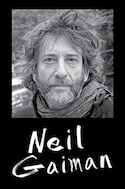
Sponsor Northwest Associated Arts is bringing Neil Gaiman to town on April 2nd, and we just got word that they have less than 150 tickets left.
Step lively over to our sponsor's page to get more details, and click through to get your tickets. Don't wait — this is sure to sell out pronto.
Sponsors like Northwest Associated Arts make the Seattle Review of Books possible. Did you know you could sponsor us, as well? Get your stories, or novel, or event in front of our passionate audience. We only have two dates left in our current block. Take a glance at our sponsorship information page for dates and details.
The Angry Doodler reviews Private Citizens by Tony Tulathimutte
Published January 30, 2017, at 11:56am
In our first-ever piece of comics criticism, Seattle cartoonist Siolo Thompson takes on a novel about San Francisco tech nerds.
Talking with Jon Raymond about Freebird, regional writing, and his Seattle reading curse
Nobody writes about the Northwest like Jon Raymond. From his gorgeous short stories— Livability is one of the finest books about the region to be published in the last two decades —to screenplays for films like Old Joy and Wendy and Lucy to novels like Rain Dragon, he’s perfected the art of writing about the lush vividness of Northwest nature, the peculiar mannerisms of Northwest people, and the sprawling wet-concrete grace of Northwestern cities.
Raymond’s latest novel, Freebird, is a departure on many levels. It’s set not in Portland or the surrounding wilderness but in sunny Los Angeles. While many of his stories are deeply personal and interior, Freebird is an overtly political book, by which I mean it’s interested in the social constructs that make society work. It’s his funniest, broadest book.
But it is still, at heart, a Raymond book, propelled by his gorgeous sentences and thoughtfully structured. Raymond’s work feels like a conversation with the reader: rather than blowing you away with raw showmanship, he invites you to slowly recognize the beauty of what’s going on around you.
Freebird is about a family in flux: a grandfather who survived the Holocaust, a mother considering an ethically shady business deal, a bored teenager who gets robbed, a soldier trying to reacclimate with American society. Readers will find pieces of themselves in all of them.
Raymond reads at University Book Store tonight at 7 pm. I talked with him on the phone about Freebird, about California, and about the many horrible readings he’s had in Seattle.
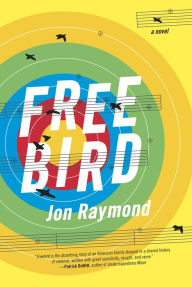
I started reading this book a couple weeks ago and then I had to set it aside because a deadline got in the way. I couldn't wait to pick it back up again. This never happens with novels, but in between my putting the book down and picking it back up and getting back into it, it somehow felt like it became even more politically relevant in that couple of weeks.
Yeah.
Novels almost never feel more relevant with the passage of time. It’s really quite remarkable. Does it feel that way to you?
Yeah. I’d say definitely. I can't say I'm pleased that its topical relevance has become more pointed since the writing happened. I wrote it mostly in 2014 and 2015. It definitely preceded the rise of Trump, Trumpism and all our current troubles.
But it was always conceived as a political book, and a book about specifically American politics. The characters were very grounded in some of my ideas about American political polarities.
I always knew that the family was in a sense a representative of an American family. I knew that they were creatures of politics and they thought about politics. I assumed it would just have a more general relevance, you know? Now, some of the rage that is carried in that book feels pretty widely shared in this moment.
Has its unexpected relevance changed the way that you read from the book, or the way that you feel about the book?
I don't think it's changed the way I feel about it. I haven't done too many readings from it yet. I did read from it on Inauguration Day and I read an assassination chapter, which I had been looking forward to doing for a long time. In a way it was almost overly on point. It didn't offer too much relief from the reality that we all share and that we go to fiction to find. It didn't create much of an alternative worldview.
But I'm excited about the book. I like reading from it. It hasn't altered too much for me.
There’s certainly more satire in here. You use the word “fun” to talk about the book and it feels like you're enjoying reading from it a little more. Especially the parts involving a deal for the rights to control graywater.
Some of the books in the past have definitely flirted with the morose, and I think with the film stuff too. For whatever reason, certain comic parts of my personality haven't really been exercised that much. For this book, I really wanted it to have a different and more fun, more vibrant feel. I wanted it to oscillate more wildly. I wanted it to bounce more.
It was a fun writing experience, I have to say. There was laughter and there were tears. For me, it was a good experience. Whether or not it's fun for other people I can’t say.
I think it absolutely comes across. You write so beautifully about the Northwest and Portland is in this book, but only as a distant place. I was wondering, with the setting of Los Angeles, if you were working outside your comfort zone, maybe in sort of the same way you were talking about with the fun and the humor?
Yeah. Absolutely. I feel like I've been pretty reverent about writing about the region for a long time. I guess, between the books and the movies, I just got to a point where it wasn't that exciting for me to write about Douglas fir trees and ferns anymore. You know?
That might change again, but I did want to expand the theater of operations a little bit. It had become a little claustrophobic to just keep walking the same ground.
For me, California certainly is a continuance of the culture up here. It's distinct, but it is still a west coast civilization. Also, I have family roots in California and so I feel comfortable representing it in some way.
Did you feel like you were being boxed in as a regional writer or was it just a general difficulty with writing the same region?
More like just, I think, a little bit of malaise, a sort of tapping the same thing over and over again. This book was coming more out of some family stories and histories that didn't feel quite as tethered to the place, you know? It could have happened in a variety of locations, so I just took the opportunity to vacation for a while.
I guess not being tethered to a place is a perfect sensibility for a story set in California.
Yeah. Right. The possibilities of that.
You were known for a while for your moments of quiet epiphany, at least in your screenplays and from your short stories. This book has a lot of action to it. I'm wondering if the broader nature of this book works as a response to the screenplays you've written?
I just think of a feature film as closer to a story than a novel. I feel like [films] are traditionally suited for smaller, more human-sized moments and a more quotidian reality. I guess for me a novel is a place where things can become more exaggerated and more, I don't know, out there in some way.
In a way, this novel is structurally pretty similar to my first novel, The Half Life, which also had multiple story lines and traveled to China and had strange time jumps and stuff like that. I think there's something in a novel that needs bigger engines in a certain way, you know? It’s funny because in some ways this book is more typically full of action, it’s more cinematic; but obviously the writing I've done for movies is not like that.
Right.
I just wanted to do something more muscular and dynamic this time. I feel like it there was a greater pleasure principle going on for me on some level.
Okay. I feel like I could sit down and ask you about your sentences forever, but I’ll let you go. I hope your reading goes well.
Thank you so much. I really do appreciate the attention. Yeah, I'm looking forward to reading in Seattle. Seattle's been a funny place to read, I'll just admit.
Oh yeah? Really?
Yeah. Probably my worst reading experience was in Seattle so I'm hoping this one changes the dynamic.
Can I ask about that?
Yeah. The first time I read in Seattle it was for my first novel and I read at Elliott Bay. I think I had two people show up, one of whom was a Unabomer-type guy who was getting out of the rain. I didn't even end up doing the reading. We had sat around and talked about writing in a very small group. I remember him telling me that he had been working on the same screenplay for 50 years.
That's five-zero, not 15?
Five-zero, yeah.
Wow.
It must be the best screenplay ever written.
Then I came back for Bumbershoot one year and read from a story that ended up becoming the Wendy and Lucy movie. I made the mistake of reading a blog afterwards or something, some guy talking about the reading. He called me an “assclown.” That’ll be in my head for the rest of my life. I’ll always be wondering exactly what an assclown is. I have never fully comprehended what that insult meant, but it stuck with me.
Then the last time I was up there, I read again at Elliott Bay, at the new location, and had two people show up. One of whom was an old high school friend of mine and the other one ended up asking me one of the most offensive questions I've even been asked at a reading.
Again, I didn't read. We just talked. By this time the Wendy and Lucy movie had been made and Meek's Cutoff, also with Michelle Williams, the actress, in it. This guy's main question for me was, "Have you ever fucked Michelle Williams?"
Oh my fucking god. That was so offensive on so many levels.
Oh my god.
I know! I know! Anyway, Seattle has been rude to me, but hopefully this year will a different experience.
Oh my God. And yet you keep coming back. That's incredible. After the third one, I would have said "that's enough of Seattle for me."
Basically, they're spaced apart enough that I kind of forget them and then I come back again.
It’s probably not my place, but I’d like to apologize on behalf of Seattle. I've been at a few readings where the audience has sucked, but never that bad. We're much better than that, usually.
Actually it's become kind of amusing. I'm on a very funny streak.
The Sunday Post for January 29, 2017
A Yazidi refugee, stranded at the airport by Trump
There are endless articles about this week's executive order limiting refugee entry into the United States, and you should read as many of them as you can stomach, and then keep reading. Trust credible sources, understand the legal and social issues, keep your eyes open despite your exhaustion and grief.
Donald Trump has taken or promised many scary, ugly actions in his first week in office, but this is the first with immediate and brutal human impact. Here's just one story: Kirk W. Johnson, founder of The List Project, on racing to unite a young Iraqi couple in the last hours before the refugee ban took effect.
I didn’t want to believe that our government would claw back a one-week-old visa from a Yazidi wife of an interpreter. For one thing, that would require a ruthless efficiency. Why would an Iraqi officer checking in passengers in Erbil care about what Trump had signed ten hours earlier? Why would the airlines care, so long as the ticket was paid for and the visa valid?
Khalas waited patiently for my answer. I asked what they wanted to do.
“We escaped ISIS at Sinjar!” he exclaimed. “How much harder can this be?”
Trust me, I don't want to talk about this shit either
I think we can all sympathize with Chuck Wendig, who was asked by one blog reader to go back to giving writing advice and for Pete's sake stop talking about Trump:
I’d rather talk about literally anything else. Otters! Bees! Cool new sex moves! Books I’ve read, movies I’ve watched, ancient beasts that I have hunted through eldritch wood! I would much rather talk about writing, or cursing, or arting harder, or poop jokes, or pee jokes (though at least there, our current president allows me to pull double-duty). But I wake up every day and I just peek at the news with one half-lidded eye through gently lifted Internet blinds and boom, it’s like that scene in Terminator 2 where the nuclear blast annihilates everything.
How an international treaty signed 50 years ago became the backbone for space law
Space law! Did anyone's heart not just leap up a little bit? Friday marked the 50th anniversary of the 'Outer Space Treaty,' a practical and also gloriously idealistic document that's guided international relations in space (in space) for the past half-century. Loren Grush has a quick review of the primary articles of space law and their application (and limits) as space travel becomes more common and commercial.
Right away, the Outer Space Treaty establishes that all nations should have free access to space, and that exploration of the cosmos should be a peaceful enterprise. Such exploration should also be done “for the benefit and in the interests of all countries,” quickly setting up the importance for international cooperation in the realm of space travel.
But immediately after creating this “fair use” of space, the treaty makes one important caveat: space and celestial bodies cannot be appropriated by a nation. That means a country can’t claim the Moon as its own ...
How Peanuts Used Marcie To Explore Unhealthy Relationships
Most of us know which Peanuts character we are — and maybe, painfully, which character others consider us to be. But few have traced the history of a single character with as much persistance and understanding as Kevin Wong, who empathizes deeply with Marcie's insecurity, self-doubt, and struggle to navigate relationships with the strong and iconic personalities around her.
It took time, and a gradual building of confidence, to know that my acquaintances would respect me more, not less, for asserting myself. Marcie’s storylines were often built around this discovery. Through her longer arcs she learned the value of asserting her self-worth and identity, whether by sticking up for someone else, sticking up for herself, or just by vocalizing her opinions.
Agency Style, for Your Eyes Only
Reassuring somehow to know that the Central Intelligence Agency has sufficient respect for correct (or at least consistent) usage to nurture a style guide all its own. Geoffrey Pullman explores the CIA's stance on the Oxford comma, the apostrophe, and other questions critical to our national grammatical security. (via Language Hat)
Naturally I checked to see whether the CIA bans the passive voice. Given how often agency business require reference to events without revealing the identity of the participants, it seemed unlikely. The entry for “passive voice” turned out to be inscrutable: “See active voice.”
Seattle Writing Prompts: Kerry Park
Seattle Writing Prompts are intended to spark ideas for your writing, based on locations and stories of Seattle. Write something inspired by a prompt? Send it to us! We're looking to publish writing sparked by prompts.
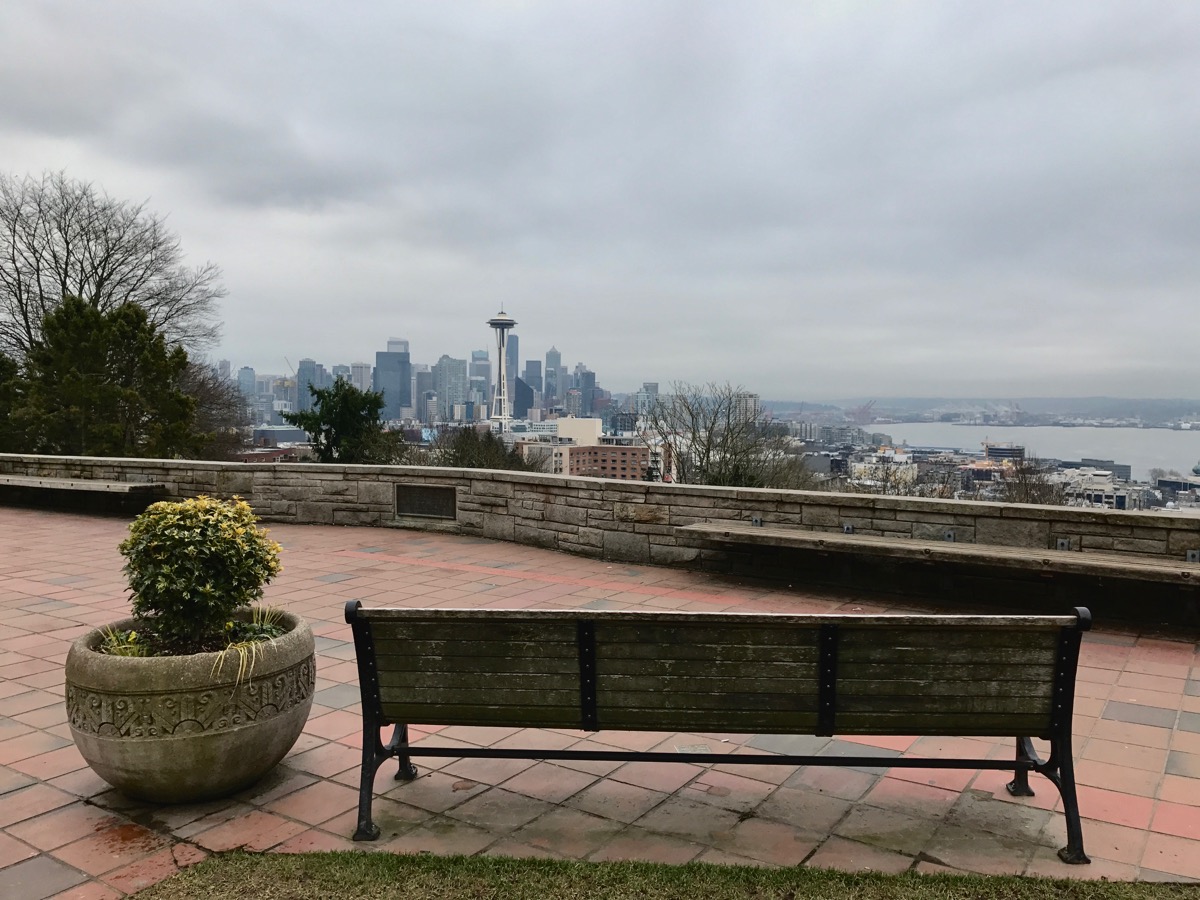
Ah, Kerry Park. As Seattle views go, it's hard to beat this one, and that's in a city with more vistas than West World. Have you ever been? It's crowded, nearly all the time (except, ironically, the day I dropped by to take these photos).
On a clear day, you can see Rainier, and if it's dusk, you can see the lined-up jewels of planes in formation on their way to SeaTac, no doubt each one carrying excited tourists, those eager to be home, and flight crews eager to knock off shift. If you're the kind of nerd that loves sighting expensive camera equipment in the wild, the lenses used here will surely impress. Everybody brings their best gear to Kerry Park. The opening credits to 10 Things I Hate About You were filmed there, as was the cover photo of a 1989 hardcore album by the band Brotherhood, which I only know about because one of their fans (or band members) made note of it on the Kerry Park Wikipedia page.
The park was a gift of Albert Sperry Kerry (that name!), and his second wife Katherine Amelia Kerry (his first, Mary Ellen Kerry, died young). He lived at 421 Highland, just down the street from the park, which the Kerry's donated to Seattle in 1927. The famous sculpture in the park, Doris Totten Chase's Changing Forms was commissioned by Kerry's three children, and installed in 1971.
People come to Kerry Park mostly for the view, but I love to walk through Kerry Park to look at all the people looking at the view. Teenagers cruising in cars with loud stereos, tourists who heard that it can't be beat, Queen Anne residence jogging by or walking their dogs, wedding photographers shooting couples in full dress, photographers with massive tripods shooting golden hour, it's a busy intersection, and that gives rise to so many story possibilities.
So here are a few, all of which may have happened, in Kerry Park, today...
Today's prompts
- 5:35 am — She was always nervous about jogging before the sky got light, but if you want to run marathons, you don't let fear stop you. Running with a friend always helps, though, and that day Joanie was going to meet her at Kerry Park, to run the loop around the hill a few times. What she wasn't expecting was to see the still body laying on the grass, wearing what looked like Joanie's running jacket.
- 10:12 am — An accident in front of the park. Happens all the time, fender bender as the morning light was particularly sparkly on downtown and the Space Needle. The difference, is that usually people who hit each other don't fall in love. And these two almost don't themselves, until their argument about who was at fault is interrupted at just the right time.
- 1:30 pm — Twice a day, on nice days, the three of them go up the hill. One is the bride, one is the groom, one is the photographer. They rotate through the roles. The bride always starts the fight. She runs off with the photographer. The poor groom is left, bereft, to find a way home when he has no money. Stupid sucker tourists....
- 6:45 pm — The end of the reunion. It took a year to plan, people flew for thousands of miles to come, and the family had never felt so close. All twenty of them would be leaving tomorrow, but they decided to do one final group picture with Seattle in the background. Each one has a memory of the past few days and what they learned about people they thought they knew. Each has a new secret to take home with them. Each one deserves their own short paragraph. Where did they come from? What is their relationship? Who is the oldest person in the family? The youngest?
- 11:59 pm — He didn't spend two freaking million dollars on a condo with the best view in Seattle only to be woken up at midnight by some goddamn band in leather and white pancake makeup — god, wasn't KISS passé!? — pretending to play their pointy guitars while a car blasted their godawful racket and some production interns shined red gelled lights on them, and idiots with cameras shot low angles to make them look wicked. He was going to give them a piece of his mind. And since they were all probably drug addicts, he made sure to grab his pistol. Just to protect himself, of course.
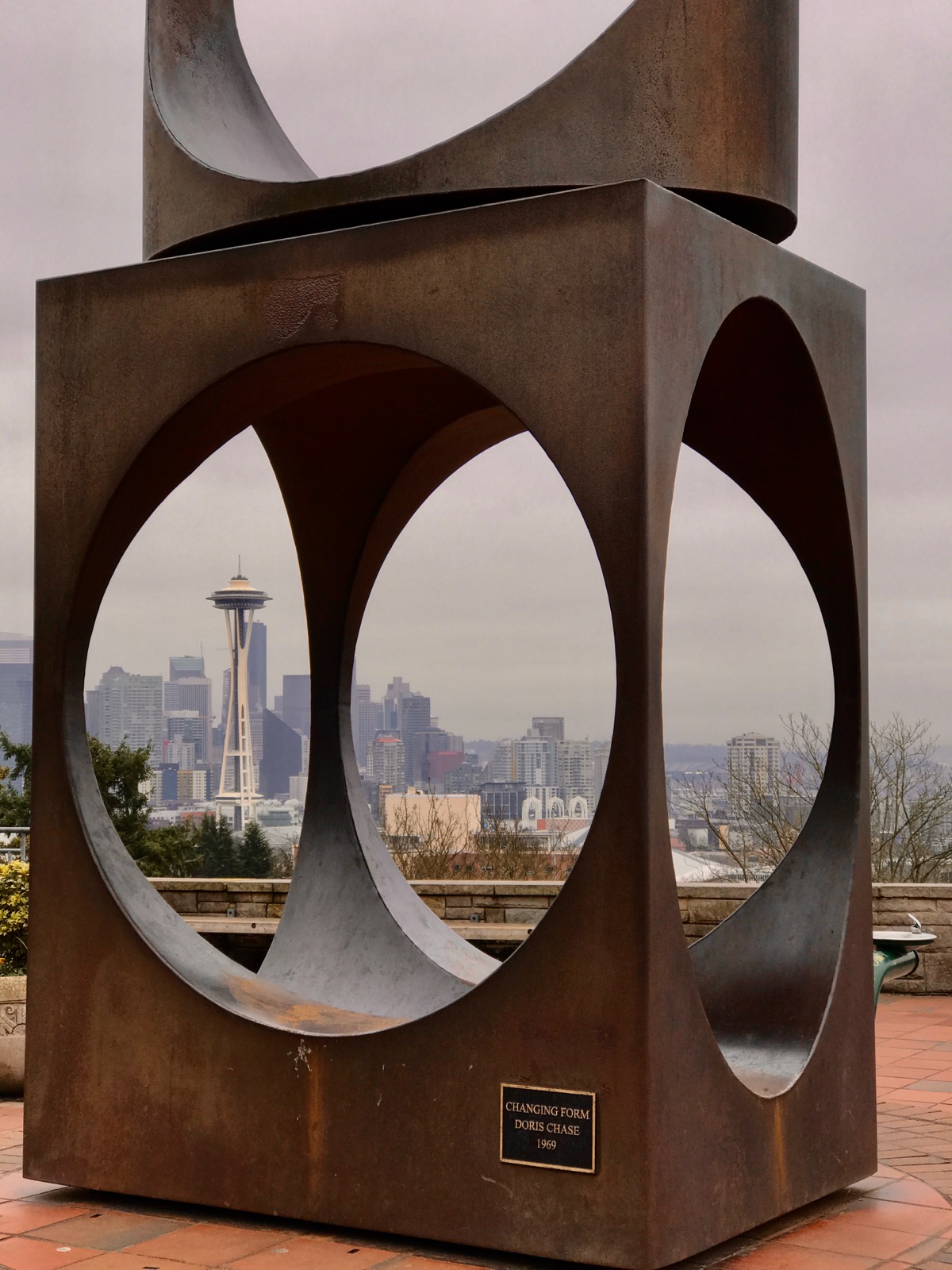
Book News Roundup: Special fall-of-the-bestseller-list edition
We told you yesterday that the New York Times seems to be removing a number of categories from its popular bestseller list feature. Starting early in February, they won't be publishing bestseller lists for graphic novels, mass market paperbacks, and certain lists for middle readers and young adults.
This story has developed since then.
Alexander Lu at Comics Beat asked the New York Times why this change was happening, and the Times responded that "the discontinued lists did not reach or resonate with many readers." Lu indicates that there may be some anti-comics sentiment inside the Times:
A source indicated to The Beat that Pamela Paul, editor of the New York Times Book Review, was ultimately responsible for the policy shift. A recent tweet [by Paul] about John Lewis’, Andrew Aydin’s, and Nate Powell’s March began with “hey, kids” and called the comic a “children’s book.”
- That aforementioned tweet is hopelessly ignorant about one of the most powerful autobiographical comics ever written. And it's unbearably condescending to Representative John Lewis, who is a bona fide hero for his civil rights activism:
Hey, kids: The new children's book by @repjohnlewis has set an awards record https://t.co/0bB1t46joI
— Pamela Paul (@PamelaPaulNYT) January 24, 2017
- Susana Polo at Polygon makes a great case about why the bestseller list mattered for comics:
Week after week, The New York Times best seller lists revealed that the American comics industry is anything but dominated by young adult men and the superhero comics they shove into plastic bags. Last week’s lists — which could now be the last ones The New York Times ever publishes — were topped with Ghosts, a female-led young adult coming-of-age story from perennial Times best seller Raina Tegelmeier, on the paperback side, and a graphic novel adaptation of science fiction grande dame Octavia Butler’s Kindred on the hardcover side.
And Calvin Reid at Publishers Weekly has an overview of how the publishing industry was blindsided by this decision, including lots of reaction interviews with publishers. If you only read one piece on all this, read this one.
Look, the newspaper industry is in trouble. Everyone knows it. But I cannot for the life of me figure out why newspaper leadership responds to budget cuts by slashing their arts coverage. The New York Times's Bestseller List is a trusted brand, one that conveys a special status to authors and publishers. It is an asset. For them to cut back on this at the same time that newspapers are trying to emphasize their value is a pretty stupid move.
It's obvious that Pamela Paul has no respect for comics as a medium. (In fact, I'm willing to bet that she considers it a genre and not a medium.) If this was her decision, I have no faith in her leadership at the New York Times. I can't for the life of me understand why you'd make your book review section even more elitist and condescending than it already was; it's like she's actively trying to turn readers away from the Times's book reviews. When they inevitably slice away even more books coverage at the Times, I bet they'll blame it on declining readership. And I also bet none of the blame for that declining readership will fall where it belongs: with Pamela Paul.
The Help Desk: How about some dystopia to go along with your dystopia?
Every Friday, Cienna Madrid offers solutions to life’s most vexing literary problems. Do you need a book recommendation to send your worst cousin on her birthday? Is it okay to read erotica on public transit? Cienna can help. Send your questions to advice@seattlereviewofbooks.com.
Dear Cienna,
Everybody is always complaining about post-apocalyptic fiction, but just look at where we are now? Kind of prescient, aren’t they?
Do you have any good recommendations for someone who's gone through the most popular YA versions of the genre? What are the deep cuts, here?
J.T., Seward Park
Dear J.T.,
What a topical question. Given that our doomsday clock just ticked closer to global catastrophe, and our new climate of alternative facts suggest global warming is God's blushing pride in our Dear Leader and rape whistles are dinner bells for hot plates of pussy, we're about one loaded sneeze from the post apocalypse.
What do you read to prepare for that?
I don't have the stomach for post-apocalyptic fiction right now – it seems like an unnecessary bummer, like learning that the imprisoned killer whales at Sea World have developed body dysmorphia from working with dolphins for so long – so I've been reading a lot of old Far Side cartoons.
But I do have recommendations for you. First, if you'd like another reason to thank toga-wearing Christ you're not a woman, try reading José Saramago's Blindness. The Water Knife by Paolo Bacigalupi is pretty damn fascinating and much closer than post-apocalyptic – it covers what happens when the southwest runs out of water. I've never read Megan Abbott's The Fever but I've heard really good things and finally, Dies the Fire by S.M. Stirling is a rustic survival guide set in the northwest and punctuated with tolerable levels of romance and gore that I enjoyed.
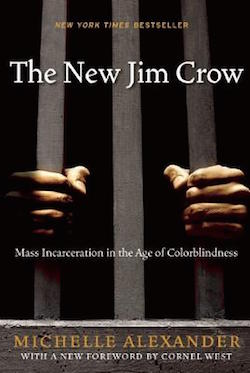
But before you read any of those, I would recommend reading The New Jim Crow: Mass Incarceration in the Age of Colorblindness. This is the era we live in, this is the true horror that many of our citizens live out, and it's everyone's civic duty to understand how our penal system persecutes people of color. Especially now.
Kisses!
Cienna
Whenever I visit a person's house, I immediately start checking out their bookshelves. Bookshelves are the best way to get a look into someone's interior life. Maybe that's why I find this tweet to be so upsetting:
A contact sends along a picture of a bookcase in what's called the Old State Department Library in the EEOB. It's the first thing you see pic.twitter.com/o4hNMkyDJr
— Christopher Hayes (@chrislhayes) January 26, 2017
Portrait Gallery: Protest Signs
Each week, Christine Marie Larsen creates a new portrait of an author for us. Have any favorites you’d love to see immortalized? Let us know
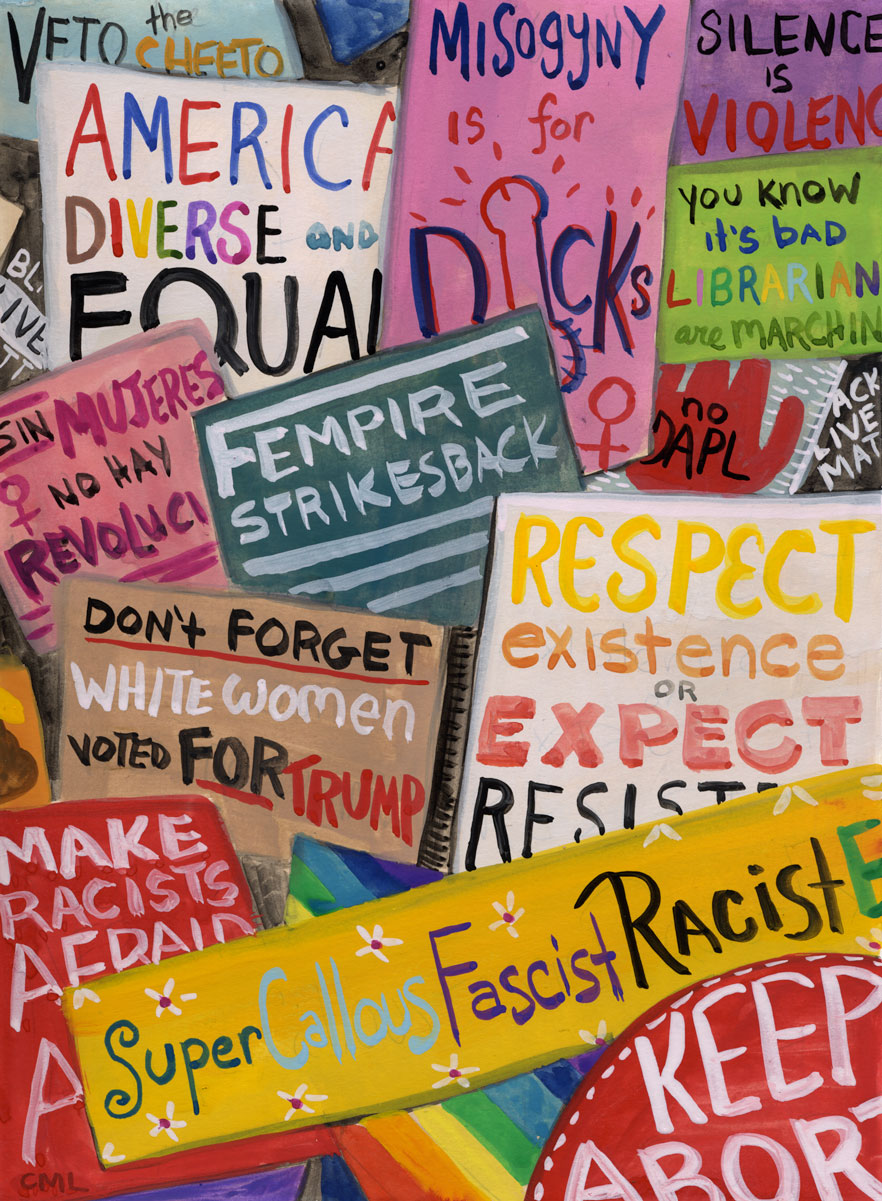
A celebration of some of the signs seen in Seattle and all over the world as people marched in protest on January 21, 2017.
Criminal Fiction: mailing lists and Twitter follows
Every month, Daneet Steffens uncovers the latest goings on in mystery, suspense, and crime fiction. See previous columns on the Criminal Fiction archive page
With novels due out from a wealth of wonderful writers – including Denise Mina, Meg Gardiner and Dennis Lehane — crime fiction in 2017 is already making its mark.
If you’re not already subscribed to Sarah Weinman’s The Crime Lady newsletter, well, what are you waiting for? Her first missive of the year had excellent books-to-look-forward-to choices from a canny range of fellow critics including Steph Cha, Charles Finch, Jordan Foster, Oline Cogdill as well as Weinman.
Reading around: new titles on the crime fiction scene
If anyone thought for a second that Ian Rankin’s former Edinburgh Detective Inspector John Rebus would stay retired longer than you could say, “I don’t believe it,” they’re not thinking it now. Rather Be the Devil (Little, Brown), Rebus’s 21st outing in 30 years, sees him roped in with colleagues Siobhan Clarke and Malcolm Fox once again as they investigate a younger-generation gangster with possible dubious financial ties. Also not coping too well with his retirement – and adding extra frissons here and there to Edinburgh’s seamier underbelly – is Rebus’s BF (Best Frenemy), the once-powerful gangster Big Ger Rafferty. Excellent. Join Ian Rankin at the Seattle Public Library on February 21.
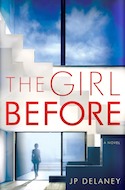
A niftily structured psychological thriller about a perfectionist architect, his dream house and two women who inhabit it at different times, JP Delaney’s The Girl Before (Ballantine) is both a page-turner and a semi-meditation on dark desires as intractable personal traps. The home, which appears to be equipped with built-in empathy as well as emotional intelligence, plays a not-so-subtle role in this double-layered creepfest.
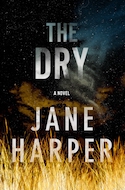
Jane Harper’s The Dry (Flatiron) opens decades ago, with Aaron Falk and his father hightailing it out of their tiny rural hometown of Kiewarra in the Australian Outback. Called back to attend the funeral of a childhood friend, Aaron returns to find Kiewarra suffering from a lengthy drought, far too much gossip and plenty of long, vengeful memories. Now a professional federal agent in the finance division, Aaron stays on to examine his friend’s accounts but finds himself quickly mired in the vagaries of a small community with a humongous set of collective baggage.
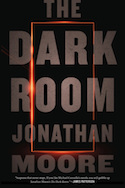
Based on the videotaped directive of a dying man, San Francisco homicide detective Gavin Cain exhumes a 30-year-old grave. The coffin’s gruesome content sets the tone of The Dark Room (Houghton Mifflin Harcourt), the second in a San Francisco-based mystery trilogy by Jonathan Moore, but it’s Cain’s thoughtful persistence that sets the pace of this tension-filled, twisty thriller. Exuding noirish elements and utilizing the city’s mean streets to their full, atmospheric effect, The Dark Room oozes dastardly deeds from blackmail to murder – and beyond.
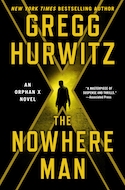
I loved last years’ Orphan X and Gregg Hurwitz’s follow-up, The Nowhere Man (Minotaur), stays true to the previously set target. As a former assassin for a covert government program, Evan Smoak puts his skills – marksmanship, nerves of steel, ability to heal his own wounds (or at least stitch them up), yadda yadda yadda – to their most challenging of tests, acting as a one-man rescue operation with the ultimate pay-it-forward system: once he helps someone, he only asks that they pass his name and number to someone else in need while he waits the next call in his fancy Fortress of Solitude. But when Smoak is captured during one of his missions, the entire game changes. Propulsive page-turner, yes, and a nail-biter to boot.
Her Every Fear by Peter Swanson (William Morrow) appears at first to be a novelistic take on the Cameron Diaz-Kate Winslet starrer The Holiday: London-based Kate Priddy does apartment swapsies with her second cousin Corbin Dell – whom she’s never met – and finds herself wowed by his fancy Beacon Hill apartment. Until, that is, a dead body turns up across the hall. And that’s just the beginning of this claustrophobic thriller. Swanson deftly weaves an intricately and beautifully tangled web, lit with nimble nods to both Alfred Hitchcock and Wendy Hiller movies.
The Quintessential Interview: Ingrid Thoft
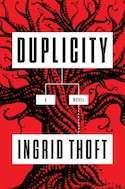
Thoft’s Boston-based PI Fina Ludlow’s life is fraught with complexities, personal as well as professional, all of which she manages in a switched-on, mouthy and head-butting way. She’s the in-house investigator for her family’s business, a firm of high-class lawyers who don’t always play by the rules; she also has to contend with her oldest brother’s non-business transgressions. In Duplicity, out this month from Putnam, Fina tangles with the Covenant Rising Church – which has suspicious similarities to a brain-washing cult – while fending for her vulnerable, partly-orphaned niece, Haley.
The Seattle-based author, who originally hails from Marblehead, Mass., calls both Beantown and the Emerald City home.
What or who are your top five writing inspirations?
I’m inspired by the news and real mysteries,particularly by the “why?” rather than the “how.” The intersections between money, power, ethics, values, and tradition inspire meto ask questions in my books that readers can contemplate through their own lens of experience. I’m inspired by fellow mystery writers who write more than one book a year! When the writing isn’t easy,I’m inspired by people who do much more demanding, difficult jobs. I’m inspired by my readers who are incredibly supportive.
Top five places to write?
At my desk with a lovely view of the water. On my couch when my back is acting up. Scrawling notes in the early morning from my bed when an idea strikes. Occasionally, on an airplane. Someday on a tropical beach with lots of snorkeling breaks!
Top five favorite writers?
Yikes! Only five?! Sue Grafton, P.D. James, Barbara Kingsolver, Jane Hamilton and Jane Smiley.
Top five tunes to write to?
I can’t write while listening to lyrics, so if I have music on, it’s classical. Favorites include Ottmar Liebert (flamenco guitar), Bach, and Mozart. When doing work-related activities that require less concentration (social media, for instance,) I listen to Beyoncé, Lady Gaga, Prince, Michael Jackson, and George Michael.
Top five hometown spots?
Seattle is where I live now, but my hometown, Marblehead, is north of Boston. In Seattle: La Fontana Siciliana, the bar at Aqua, the Olympic Sculpture Park, any of the city’s great bookstores, Molly Moon’s for salted caramel ice cream. In the Boston area: lobster rolls from Kelly’s Roast Beef; the lighthouse at Chandler Hovey Park and fried clams at the Barnacle, both in Marblehead; Boston’s Back Bay neighborhood; the Liberty Hotel, the city’s former jail repurposed into a luxury hotel.

